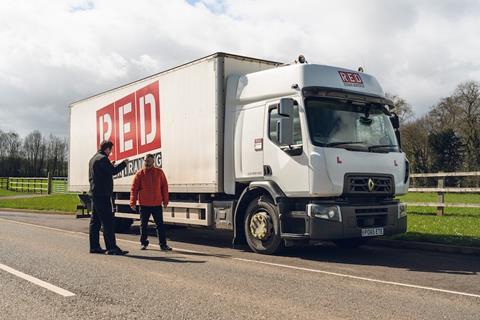
Years of hard work in improving road safety risk being undone after the government announced it was allowing longer semi-trailers on the roads and also proposed to allow motorists access to 7.5-tonne lorries, a training firm claimed.
RED Corporate Driver Training said “a double-pronged threat” had been created because both ideas did away with essential training.
It accepted there was a need to address the CV driver shortage, but added that de-regulating licensing requirements was not the right approach.
In May, the government said it was introducing legislation to permit longer lorries up to 18.55 metres following an 11-year road trial, which was widely welcomed by the haulage industry.
Meanwhile, the department for transport (DfT) recently published responses to its consultation into allowing car drivers to operate vehicles up to 7.5-tonnes.
It found that out of 114 responses, 97 consultees made positive comments about the proposal, including that it would alleviate the driver shortage and provide savings to businesses.
Members of the public who passed their car test (class B) before 1997 can currently drive a 7.5 tonner. The new proposal aims to restore a right that was withdrawn by the EU.
Read more
- ‘Longer lorries need better safety tech,’ Brigade tells hauliers
- Government move on longer semi-trailers strengthens call for LHV trial
- Government finally gives longer semi-trailers the green light
The DfT said it was considering the responses before confirming the next steps.
However, Seb Goldin, chief executive at RED Corporate Driver Training, said: “These vehicles require extensive training to operate in a safe manner – we can’t simply do away with the need for training because it goes hand-in-hand with improving road safety for all users.”
He added: “Removing these requirements creates a huge gulf in knowledge, which is quite scary when you think an 18-year-old who has just passed their driving test could be handed the keys to a 7.5-tonne lorry. We urge the government to re-think this plan.”
And on the introduction of longer semi-trailers (LSTs), Goldin said: “Is additional training and testing being considered for this move? You need to complete a special test currently to show manoeuvring competency, so will a retrospective test be applied to these longer trailers?
“Is there a mandatory multiple blind spot camera requirement, because expecting a driver to navigate and cover all blind spots on this length of trailer is asking a lot of a normal human, especially with the increase in e-bikes and e-scooters in urban areas?”
Last month, Brigade Electronics said hauliers keen to run LSTs should be investing in increased safety technology, such as cameras and sensors, in order to reduce the risk to road safety.











